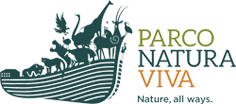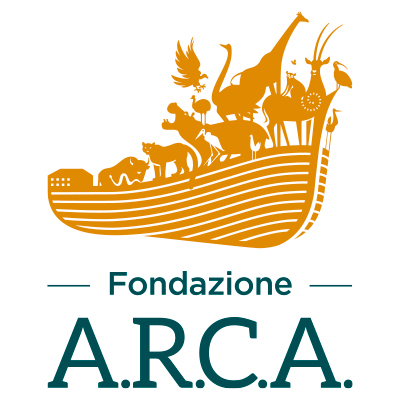The Park
Parco Natura Viva was opened in 1969. It covers about 40 hectares of land and is a natural zoological garden which is home to some 1.500 specimens belonging to over 250 wild species. Each year the Park is visited by around 40.000 school students, from kindergarten to high school, as well as almost half a million individual visitors.
The Park is divided into two main areas to visit: the Safari Park, in which the visitor stays in his vehicle, and the Fauna Park, which is for pedestrians only. The Park’s predominant activity involves the breeding of wild animal species, in coordination with leading zoological institutions in Europe. This commitment is also enshrined in art.1of Legislative Decree. 73 of 21 March 2005 which lays down rules aimed at enhancing “the role in conserving biodiversity, in order to protect wildlife andpreserve the same biological diversity”.
The usefulness and necessity of a modern zoo was officially defined by the Rio Conference in 1992, where the value of conservation, ex situ integrated with in situ, for the protection of biodiversity was strongly stressed. The outlook of Parco Natura Viva is now the world: in addition to contacts with local and national organizations, a modern zoo must cultivate a dense network of international contacts in order to coordinate the management of animal populations to avoid risks of inter-breeding and to promote initiatives for the reintroduction of endangered species into the wild.
ZOO LICENSE
Under Legislative Decree n. 73/2005, dated May 26, 2011 the Ministry of Environment, in consultation with the Ministry of Health and Ministry of Agriculture, Food and Forestry, has issued a Zoological garden license to Parco Natura Viva, published in the Official Gazette December 2011.
As an European modern zoo, Parco Natura Viva-Garda Zoological Park is much more than a place to go and see animals. European modern zoos are dedicated to conservation of native and exotic species to ensure the survival of species in the wild and the continued good health of captive animals. Modern zoos have a great importance because they are involved in breeding programs, conservation projects, re-homing projects and so on. There are European different husbandry guidelines for different species with rules for minimum accommodation, husbandry, diet, management and other important aspects of the captivity. However, as modern zoos come from old zoos they need to renovate enclosures to give to the animals a captivity condition close to their natural habitat. Thus, from the past to the present zoos have continued to evolve into the modern day zoos are today. Attitudes towards animal welfare, attitude towards inter-zoo cooperation and established collection plans and priorities, all effects the rate of change and the nature of changes taking place in each collection. In the last years Parco Natura Viva-Garda Zoological Park has been settling from gradual replacement of animal housing in order to have a total rebuilding with all stages in between.
The Park is divided into two main areas to visit: the Safari Park, in which the visitor stays in his vehicle, and the Fauna Park, which is for pedestrians only. The Park’s predominant activity involves the breeding of wild animal species, in coordination with leading zoological institutions in Europe. This commitment is also enshrined in art.1of Legislative Decree. 73 of 21 March 2005 which lays down rules aimed at enhancing “the role in conserving biodiversity, in order to protect wildlife andpreserve the same biological diversity”.
The usefulness and necessity of a modern zoo was officially defined by the Rio Conference in 1992, where the value of conservation, ex situ integrated with in situ, for the protection of biodiversity was strongly stressed. The outlook of Parco Natura Viva is now the world: in addition to contacts with local and national organizations, a modern zoo must cultivate a dense network of international contacts in order to coordinate the management of animal populations to avoid risks of inter-breeding and to promote initiatives for the reintroduction of endangered species into the wild.
ZOO LICENSE
Under Legislative Decree n. 73/2005, dated May 26, 2011 the Ministry of Environment, in consultation with the Ministry of Health and Ministry of Agriculture, Food and Forestry, has issued a Zoological garden license to Parco Natura Viva, published in the Official Gazette December 2011.
As an European modern zoo, Parco Natura Viva-Garda Zoological Park is much more than a place to go and see animals. European modern zoos are dedicated to conservation of native and exotic species to ensure the survival of species in the wild and the continued good health of captive animals. Modern zoos have a great importance because they are involved in breeding programs, conservation projects, re-homing projects and so on. There are European different husbandry guidelines for different species with rules for minimum accommodation, husbandry, diet, management and other important aspects of the captivity. However, as modern zoos come from old zoos they need to renovate enclosures to give to the animals a captivity condition close to their natural habitat. Thus, from the past to the present zoos have continued to evolve into the modern day zoos are today. Attitudes towards animal welfare, attitude towards inter-zoo cooperation and established collection plans and priorities, all effects the rate of change and the nature of changes taking place in each collection. In the last years Parco Natura Viva-Garda Zoological Park has been settling from gradual replacement of animal housing in order to have a total rebuilding with all stages in between.
 Italiano
Italiano English
English Deutsch
Deutsch





